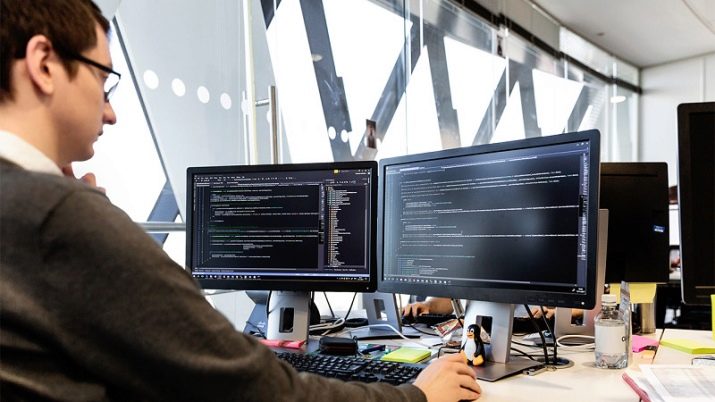Good education, solid professional experience and other things are important. But still, most of the posts are interviewed. Potential applicants need to know what types of such a procedure exist and what its features are in different cases.
What it is?
It is not difficult to answer a similar question if you put yourself in the place of the employer. From his point of view, the goal The interview is an assessment of the suitability of candidates for jobs. They are evaluated according to a variety of criteria.
And tricky questions, difficult tasks are put forward not just like that - they allow us to successfully characterize this or that person, his professional qualities.

Structure
There are several parts to this procedure. Usually emit:
- Start of conversation
- general questions and initial acquaintance with the candidate;
- clarification of the adaptive properties of the personality;
- determination of the intellectual characteristics of a person;
- determination of compliance with future professional duties;
- block with non-standard questions;
- end of conversation.
Types
There are several types of interviews.
Individual
Most often it is precisely what he means by the word “interview”. This format implies nThe most close confidential contact of the recruiter (chief) with the candidate. It is possible to quickly discuss an extensive block of questions. But great is the subjectivity of the assessment by the recruiter. Yes, and it will take quite a lot of time.

Group
It’s not just about the situation when you are invited to an interview 2 or more people (in fact, group format). There is also a panel subspecies when 2 or more interviewers are involved in the procedure. Do not confuse this technique with false group interviews, often conducted in network marketing. In reality, it is designed to evaluate leadership qualities, the ability to organize work.
Gathering people in a group, employers also expect to save their own time.
Remote
In the past they used a telephone for him. Now they are actively using Skype and other messengers. Contrary to popular myth, the appearance and manners in this format are estimated to be almost more picky than with a traditional interview in an office. They try to use remote interviews not only for nonresident or foreign applicants. It is considered an excellent way of primary selection.

Kinds
In addition to types, interviews are divided into the following types.
Situational
This method is not so unusual; it is often used to evaluate candidates for leadership. They offer one or another conditional situation from which it is required to find the optimal solution. Such a technique is appreciated because it allows you to see a person’s way of thinking and understand how ready he is to act correctly.
No one seeks to exert psychological pressure, because it does not correspond to a similar format.
Free
It doesn't look like an interview in the usual sense of the word, but as an acquaintance. The applicant will have to say much more than his employer. A common option is to tell about your life. In such a story, it is very difficult to build patterns and use “homework”. Moreover, the interviewer always controls the course of the conversation and can direct it in the right direction.

Biographical
The bottom line is focusing on the life of the candidate. But here the role of the interviewer is more active. They may be asked to talk about the motives for choosing an institution and specialization in it. Naturally interested in:
- motives when choosing a previous job and leaving it;
- what a person considers unsatisfactory, unfaithful in his life over the past few years;
- relationships with other people;
- management experience and so on.
By competency
As it is easy to understand from the name, in this case they check knowledge, the presence of skills and abilities of various kinds. Due to time constraints, they are interested in general competence. For example:
- for accountant key economic terms and definitions are important;
- for the secretary - types of documents and organizations, their approximate structure;
- for engineer and constructor - Fundamentals of higher mathematics, material resistance, standards.

Stressful
You do not need to be an expert in psychology to understand that in a complex, ambiguous situation, people behave differently than at rest. Stress interview designed to shake familiar peace, determine the stability of the candidate. Each employer wants to prevent breakdowns due to instability, unpredictability of behavior.
The rigidity of the procedure is very different depending on the scale of the requirements. Most often, the recruiter draws up a list of questions and difficult tests together with a psychologist.
Stages
Consider the main stages of a full interview.
Telephone interview
The role of this stage is not only to agree on the optimal date for the conversation or immediately postpone it to another day. Already in the manner of speaking, giving oneself during a telephone conversation they judge a person. Of course, this "works" in both directions. An applicant for a position can evaluate a potential employer already at that moment. Yes, you can say as much as you like the procedure is preliminary, but it is the first impression that is always stronger.

Preparation
If you are invited to an interview when applying for a job, it's too early to rejoice. Be sure to consider in detail how to show yourself. And to do this is important regardless of whether there is a preliminary communication of the chief (recruiter) with the candidates, a second or final interview. The fact that you need to put your clothes and shoes in order, take care of hygiene - or not come at all - is completely obvious. But it's not only that.
A good candidate, regardless of the position and the degree of his chances of taking it, will try to learn more about the company and its management. It is useful even at the stage of telephone conversations or during correspondence to find out:
- the exact location of the place where the interview is scheduled;
- bandwidth system features;
- company dress code;
- employees to communicate with;
- possible test tasks;
- necessary documents and materials.

High-quality presentation implies that the employer will receive an answer to the questions:
- How competent is the candidate as a whole;
- what technologies, skills and techniques in the profession he owns;
- what life positions adheres to;
- how purposeful and diligent.
Of course, You must come exactly at the time when you are scheduled to appear at the interview. It’s worthwhile to find out in advance the features of the route, take care of the health of your personal car, and calculate the travel time. Better - with alternatives. If you are suddenly scheduled to be late due to unforeseen circumstances, you need to call immediately and warn. These principles will increase the chances of both an initial and a second interview.
Most often, the conversation lasts from 10 to 40 minutes (about 75% of cases). In 10% of cases, it takes 40-60 minutes, and the probability of an interview in 61-90 minutes is less than 1%. And very long conversations await applicants for top positions in the organization, but not ordinary employees.
Important: if the organization constantly sets new dates for interviews or conducts them for more than two, it makes no sense to work in it. This allows you to immediately say - employees are not appreciated here.

A meeting
It doesn’t matter in what format the meeting will be with the employer - whether it is a conversation with the head of the organization, or with the head of the branch (structural unit), or with the recruiter. You need to behave politely and correctly from the first seconds. Both subservience and excessive pride, self-praise are unacceptable. It is important to demonstrate goodwill, a positive overall attitude and confidence.
If you already have another job, you need to clearly think about how to take leave for an interview. A few recommendations:
- if possible, make an appointment outside normal business hours;
- try to replace lunch with an interview;
- motivate care with health problems, difficulties in children or parents;
- declare yourself a witness to an accident or other incident.

Summary
But regardless of these subtleties, the practical result is still important. People are naturally interested in signs that make it possible to determine whether they decided to invite them to a new job or whether they did not (and will not) take them. Absolutely positive signals will be:
- Enthusiastic conversation between a recruiter or a boss;
- offer a tour of the territory;
- the interview is delayed longer than planned;
- the conversation is leaning toward wages, bonuses and the benefits of working in an organization;
- ask if there are recommendations.
Failure is usually expressed in the following points:
- bad mood of the interviewer;
- his carelessness to the interlocutor;
- the conversation is clearly uncomfortable;
- early termination of the conversation.
Even if there is a suspicion that they were not accepted for work, a goodwill gesture must be made. Namely - send a thank you note after the interview. They spent time and effort on you. That alone deserves respect.
Important: you definitely shouldn’t write such a letter using a template - it is better to focus on your own thoughts and emotions.

Features for different jobs
The conversation of a man or girl with the head of the department, with the general director or a recruiter - this is not all the content of the interview. A lot depends on the profile of the employee hired. So, if a vacancy in the programmer’s specialty is open, experienced managers will not try to evaluate his professionalism with “five magic questions”. But they will definitely ask about the most interesting of the projects that I had to deal with. When talking about an independent project, they will be asked to explain how different roles were combined by one person.
If the programmer says that he worked in a team, the recruiter will ask how everything was built there. They may still ask about:
- hobbies;
- desire to change this or that moment at the current place of work;
- idea of the ideal place to work.
Some organizations even conduct interviews for the position of loader. You don’t have to go to him in business clothes, as it would be logical to do during an interview with a sales representative, lawyer, marketer or economist. It is more correct to come in the usual working form. She should be in perfect order. Important: a proposal to smoke is nothing more than a test of willpower and discipline; good is the candidate who refuses.
But a conversation with recruiters awaits not only people of the above professions or, for example, a loan specialist, but also top managers. Potential managers are expected to know company information at least as deeply as long-standing lower-level employees. Sometimes you have to show off knowledge of organizational theory, workflow, market features in general and competitors in particular. In the same way, only in less detail, they ask those who sent resumes to the territorial manager, restaurant manager, analyst.

But the future sales consultant needs to behave no less prudently. Here you can advise:
- to tell from all professional activities only about successful sales;
- speak clearly and loudly, in a well-posed voice;
- answer the question about the knowledge of previously sold goods in detail, indicating small nuances.
It is important for the designer to demonstrate their readiness to solve not only complex standard, but also atypical tasks. Very often ask a lot of questions that are designed to show the flexibility of thinking. There are also questions on the construction of logical chains with a lack of input data. They may be asked to formulate so many atypical ways of using simple things. There are many options, but the essence is the same - the designer will have to constantly think.
Those who are going to take the post of system administrator can ask questions about:
- electrical safety equipment;
- causes of common electronics failures;
- main features of popular electronic devices;
- PC repair, setup.
An interview with a courier usually comes down to an assessment:
- communication skills;
- resourcefulness;
- ability to keep your mouth shut;
- experience;
- personal life.

Realtors are usually asked about:
- experience;
- accumulated skills;
- a typical way of relaxation;
- reason for dismissal;
- the nuances of the housing market;
- career expectations.
To evaluate the chief engineer, interested in:
- ability to develop technical development plans;
- ability to improve the quality of equipment;
- creation of competitive products;
- compliance with design standards and requirements.
Filing resumes for the position of secretary, administrator of a beauty salon, a medical representative must be thoroughly familiar with the paperwork. In the beauty salon it is extremely important to present the features of cosmetics, and the medical representative must understand the preparations and special equipment.
The interview for those wishing to become a nanny and teacher can equally be aimed at clarifying pedagogical literacy. But in the first case, the ability to control oneself and work patiently with the child is still important.
An interview with a merchandiser often involves a test of knowledge:
- shipment;
- storage;
- circulation of various goods.

Like other specialists (the same waiter), a merchandiser can ask about their attitude to former employers. In this case, you must answer either politely or neutrally. As for the conversation with the driver, the recruiters are keenly interested in driving experience and the presence of bad habits, knowledge of the area.
Useful language skills, machine repair skills, forwarding skills. An interview with a florist implies not only a thorough knowledge of flowers and the flower market, but also a test of creative inclinations. Be sure to ask to make a bouquet.
For a nurse it is important:
- teamwork skills;
- interaction with “difficult” doctors and orderlies;
- ability to resolve unforeseen situations;
- willingness to quickly learn new information, methods of treatment and rehabilitation.
An interview with a promoter for the most part comes down to formalities. The only thing they can focus on is communication skills and the ability to establish contact with strangers. However, excessive openness is not welcome.
Those who filed a resume with the librarian will have to test the knowledge of librarianship, the procedure for storing publications and their distribution. They will certainly take an interest in how many applicants read, what they prefer among literature.
Given the latest trends, knowledge of the basics of copyright is also becoming more relevant.

How to answer the questions?
To study ready-made examples of dialogue on the Internet and in ordinary literature is always useful. But this is far from all that will make it possible to succeed. On the contrary having learned ready formulas purely mechanically, people doom themselves to failure. LAny experienced recruiter can recognize it in seconds.
An applicant who has decided to sell himself at a higher price (and this is the main goal) must firmly remember that perfect communication is communication in a natural manner. Any insincerity, falsehood, stretch immediately puts an end to the plan. Often you have to face ridiculous questions. They need to be answered politely and as consistently as possible, logically. Remember: this may be part of a scenario aimed at undermining a candidate’s calm. It is necessary to communicate constantly, to be silent and to wait, gathering thoughts, is definitely a failed strategy.
If asked why they should take a particular candidate, they will have to focus not on professionalism, but on psychology. This question is asked to see if a person is able to renounce his self-presentation. It is worth preparing for the answer to this question: describe the most serious failure. Employers must study the biography of applicants. And that's why the best strategy for communicating with them is honesty. It is also necessary to show the ability to negotiate and make reasonable compromises.

Common mistakes
When applying for a job, anyone should know many other subtleties. So, if the employer clearly makes it clear that he is not ready to discuss salaries, to bargain for bonuses and allowances, then it is better not to focus on this topic and not try to “push through” your requirements at any cost. It is highly advisable to recall the contents of the resume and not to disagree with it in their answers and monologues. It is very important to confirm all those skills that are voiced in the resume. People with no work experience are recommended to characterize educational and social activities - any achievements that show a person on the good side will improve the impression.
Even if there is no such experience, they will ask about life and career goals.When joining a large organization at the international or federal level, it makes sense to talk about the prospects for development and career growth. Such a question can be asked by promoters, couriers, and even janitors and plumbers. In this case, you can say bluntly - I want to get a job and have a stable income. Important: no matter what the question, it is very useful to answer it so as not to ask for additional clarifications and inquiries.
After every failed interview you need to carefully analyze the questions and your answers. This will avoid further repetition of errors. Everyone understands in this spirit - "what did not suit and how to behave correctly."
It is worth considering: all the excuses “why I was late / late” have very little effect. It is better to make every effort and arrive on time or with a small margin. It is not worth rushing too much, because it can put the tenant in an uncomfortable position.

Tips & Tricks
Combining interviews with the main job is quite difficult. But if you can’t free up enough time, then in an extreme case you can try to arrange a meeting on a weekend, holiday. Or about an interview via Skype.
You can meet during working hours, coming up with different occasions and prepositions. But then in a new place they may ask about the reasons for such an act. And he can immediately create a negative impression. Only maximum honesty and openness can help out. Sometimes it’s worth not risking, but entrusting the bulk of the job search to the agency. True, such an effective solution can be quite expensive. But there is already no particular choice.
After a long break, any candidate is clearly considered as not too valuable frame. This is an objective truth, confirmed by the experience of hundreds of thousands of people. But there is a great way to produce a beneficial effect even in such a rather complicated case. We must tune in to the fact that the recruiter or potential boss is not a fierce enemy, but a normal person. And most importantly, what he wants is to get a full-fledged employee for a vacant place.
Such a mood will allow you to find the right way out of even the most awkward situations. It is very useful to focus on those additional skills and competencies that were mastered during a break in work. It is also necessary to emphasize the experience of freelancing, which has at least a little relevance to the essence of the work ahead. Even relatively small projects and achievements should be called - each of them can become a decisive factor. Advantages will also be recommendations from former executives and former colleagues, from customers.

It is very useful to show motivation by demonstrating:
- knowledge of the latest industry standards;
- possession of relevant software and technical tools;
- knowledge of the latest changes in legislation and by-laws;
- knowledge of the names of recent celebrities in the professional field.
Sometimes an insidious test awaits at the interview - to talk about the negative sides. Here it is necessary to go along a very fine line. A pale and unconvincing story is not very impressive, and a very bright one makes a person a very bad candidate in the eyes of a recruiter. A normal mature person will not hide his shortcomings, but he will not focus too much on them. He will simply say: there are such and such weaknesses, however, I am working on them; and try to formulate everything so that the flaws themselves seemed pluses.
Some more recommendations:
- Do not talk about the negative aspects that are not directly related to the work;
- immediately match the dress code of the company;
- prepare your questions to the recruiter (this will express interest);
- maintain eye contact with the interlocutor;
- be sure to be interested in working conditions;
- end the meeting, politely saying goodbye.











